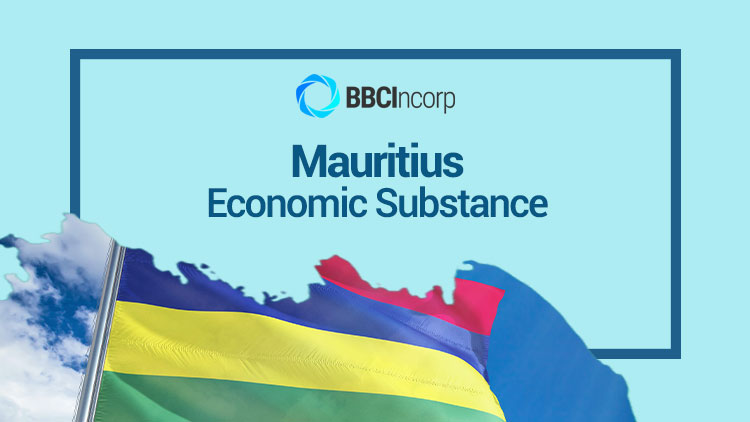
In August 2019, Mauritius Minister issued the Income Tax Act which set forth provisions on the economic substance rules regarding certain income streams.
Hereafter, we summarize the important points and present a guideline to help business owners better understand the Mauritius Economic Substance regulations.
1. Background of Mauritius Economic Substance
In 2015, the OECD introduced the Base Erosion and Profit Shifting (BEPS) framework, which aims to tackle international tax avoidance by shifting profits from high-paying tax jurisdictions to low-paying tax jurisdictions.
As part of the BEPS, the OECD periodically identifies tax regimes that unfairly impact the tax base of jurisdictions, which are referred to as “harmful tax practices”.
To address the OECD’s concerns on harmful tax practices, Mauritius abandoned the deemed foreign tax credit available to Global Business License Regimes and instead put in place an 80% Partial Exemption Regime (PER) on certain income streams.
This new regime implemented less preferable taxation and ensured that Global Business Corporations (GBCs) paid tax in Mauritius on their global income.
Effectively, the Mauritius Economic Substance Regulations were introduced to enact certain requirements for companies seeking to enjoy the 80% exemption.

2. Mauritius Economic Substance Regulations
In order for GBCs to qualify for the exemptions under PER, they are required to satisfy 2 tests as follows:
Test 1: Substance requirements
The GBCs must:
- carries out core income-generating activities (CIGAs) in Mauritius (refer to test 2 below);
- employs, directly or indirectly, an adequate number of qualified employees;
- incurs a minimum level of expenditure proportionate to its level of activities.
The GBCs in the context of Mauritius ES Regulations refer to entities below:
- Collective Investment Scheme (CIS);
- Closed-end Fund;
- CIS Manager;
- CIS Administrator;
- Investment Adviser;
- Ship and Aircraft Leasing company;
- Company engaged in reinsurance activities;
- Company engaged in leasing and international fiber capacity; and
- Company engaged in the sale, financial arrangement, asset monitoring of aircraft and its related parts, and aviation advisory services in connection thereto.
Test 2: Core Income-Generating Activities
GBCs must ensure that, at all times, their CIGA is being carried out in or from Mauritius. The list of core income-generating activities that are supposed to be conducted by the GBCs is summarized below.
- Collective Investment Scheme (CIS): Investment of funds in relation to securities, or other financial assets, real property or non-financial assets; diversification of risks; redemption on the request of the holder.
- Closed-end Fund: Investment of funds collected from investors, in relation to securities, or in other financial or non-financial assets, or real property.
- CIS Manager: Management of a Collective Investment Scheme, making decisions on the holding and selling of investments; monitoring risks and reserves; taking responsibility on currency or interest fluctuations, and preparing relevant reports for authorities and investors.
- CIS Administrator: Providing services regarding the operations and affairs of a Collective Investment Scheme including accounting, valuating, or reporting services.
- Investment Adviser: Advising, guiding, or recommending other persons, whether personally or through printed materials or by other means, to enter into securities transactions; managing or holding himself out to manage securities work; giving advice on corporate finance advisory matters concerning securities transactions.
- Ship and Aircraft Leasing company: Agreeing on funding terms, identifying and acquiring assets to be leased, setting out the terms and duration of any leasing, monitoring and revising any agreements, and managing any risks.
- Company engaged in reinsurance activities: Predicting and calculating risk, reinsuring against risks, administrating clients’ cells, providing related services, preparing regulatory reports, and providing clients technical advice in respect of reinsurance of liabilities.
- Company engaged in leasing and international fiber capacity: Agreeing on funding terms, identifying and acquiring the capacity to be leased or otherwise provided, setting out the terms and duration of leasing or right to use contracts, revising any agreements, and monitoring any risks.
- Company engaged in the sale, financial arrangement, asset monitoring of aircraft and its related parts, and aviation advisory services in connection thereto: Negotiating terms of purchase and sale of aircraft and its spare parts, arranging for sale and leasing, agreeing on funding conditions and providing advisory services regarding aviation.
Note
According to the Income Tax Regulations 2019, GBC can outsource its business activities to third-party service providers, under conditions that:
- There is adequate monitoring of the outsourced activities;
- The outsourced activities are conducted in Mauritius;
- The substance of service providers is not used multiple times by multiple companies.
3. Conclusion
With the introduction of Economic Substance Regulations, Mauritius is considered compliant with global tax transparency standards.
However, the OECD’s reservations on the Mauritian tax regime are still ongoing, which means Mauritius needs to make amendments to its legislation to further eliminate harmful tax practices.
As a result, companies need to keep track of the Mauritian tax and regulations changes to make business decisions accordingly.
If you have any questions or concerns about this matter, feel free to contact us for further support!
Disclaimer
While BBCIncorp strives to make the information on this website as timely and accurate as possible, the information itself is for reference purposes only. BBCIncorp would like to inform readers that we make no representation or warranty, express or implied. Feel free to contact BCCIncorp’s customer services for advice on specific cases.
Get helpful tips and info from our newsletter!
Stay in the know and be empowered with our strategic how-tos, resources, and guidelines.

